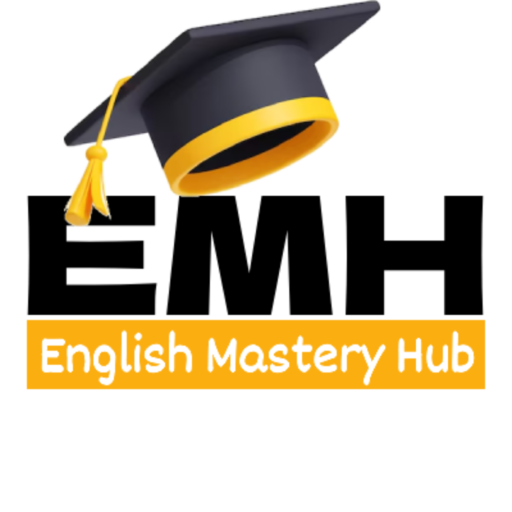
Teaching Minds or Shaping Souls? The True Purpose of Education
Article Level: C1-C2
Explanation: This article explores the deeper purpose of education, arguing that true learning goes beyond exams and knowledge. It highlights the need to nurture empathy, morality, and emotional intelligence to shape compassionate, well-rounded individuals.
Commonly Used Words from the Article
-
Empathy /ˈɛmpəθi/ (noun): The ability to understand and share another person’s feelings.
Empathy allows students to connect with diverse perspectives. -
Conscience /ˈkɒnʃəns/ (noun): A person’s moral sense of right and wrong.
True education awakens the conscience as much as the intellect. -
Accountability /əˌkaʊntəˈbɪlɪti/ (noun): Responsibility for actions or decisions.
Schools often focus on accountability through exams. -
Discernment /dɪˈsɜːnmənt/ (noun): The ability to make good judgements.
Education should nurture moral discernment. -
Curiosity /ˌkjʊərɪˈɒsɪti/ (noun): A strong desire to know or learn something.
Curiosity drives genuine learning beyond the classroom.
Audio File of the Article
Read more: Teaching Minds or Shaping Souls? The True Purpose of Education

Teaching Minds or Shaping Souls? The True Purpose of Education
Education has long been viewed as the cornerstone of human progress. Yet, as classrooms fill with digital tools, rigid curricula, and exam-driven learning, one must ask: Is education merely about teaching minds, or should it also be about shaping souls? This question challenges the very essence of what learning means in an age defined by information rather than understanding.
True education extends beyond the memorisation of facts or the mastery of formulas. It seeks to nurture empathy, critical thinking, and moral awareness — qualities that transform individuals into conscious citizens rather than efficient workers. When schools prioritise test scores over curiosity, they risk producing graduates who can recite data but cannot interpret the human condition behind it. The greatest educators in history — from Socrates to Maria Montessori — believed that education should awaken both intellect and conscience.
Modern education systems, however, often reduce learning to a measurable outcome. League tables, standardised assessments, and employability metrics dominate the conversation. While such methods ensure accountability, they rarely inspire imagination. Students become products of a system designed to feed economies, not enlighten minds. The soul of education — the cultivation of values, creativity, and self-awareness — fades into the background.
Shaping souls does not imply moral preaching or religious instruction; rather, it refers to developing emotional intelligence and ethical discernment. These skills allow learners to question injustice, empathise with others, and contribute meaningfully to society. In an increasingly polarised and competitive world, such traits are not luxuries — they are necessities.
Furthermore, the role of teachers must be reimagined. A true educator is not a mere transmitter of information but a guide, mentor, and inspirer. Teaching becomes a dialogue rather than a delivery. When students are encouraged to think independently, they not only acquire knowledge but also learn how to use it wisely.
Education should, therefore, strike a delicate balance: to teach the mind without neglecting the soul. Intellectual growth and moral development are not opposing forces; they are two halves of the same human journey. The future depends not on how much students know, but on who they become through what they learn.
If the ultimate aim of education is to prepare people for life, then shaping souls must take precedence over filling minds. Only when wisdom walks hand in hand with knowledge can education fulfil its true purpose — to create not just competent individuals, but compassionate ones.

Grammar Notes
-
-
-
The article frequently uses subordinating conjunctions such as while, although, and when to express contrast or condition.
-
Example: While such methods ensure accountability, they rarely inspire imagination.
-
-
Relative clauses add depth and precision:
-
Example: Students who can recite data but cannot interpret the human condition behind it.
-
-
Modal verbs express obligation and necessity:
-
Example: Education should strike a delicate balance.
-
Mini Lesson:
When writing at an advanced level, combine independent and dependent clauses to show complex relationships between ideas.
Example:
❌ Simple: Education is important. It helps people grow.
✅ Advanced: Education is important because it helps people grow not only intellectually but also emotionally. -
-
Join Our FREE English Grammar Course and improve your grammar skills!

Five Questions Based on the Article
-
What distinction does the author make between teaching minds and shaping souls?
-
How does the article critique modern education systems?
-
Why are empathy and moral awareness described as essential to education?
-
What role should teachers play according to the article?
-
How does the author define the ultimate aim of education?
Join Our Weekly English-speaking Class and improve your speaking skills!

We’d love to hear your thoughts! Join the conversation by leaving a comment below. Sharing your insights, questions, or experiences can help you connect with others in our English learning community. It’s a great way to practice your English skills, engage with like-minded individuals, and improve together. Don’t be shy—jump in and let’s keep the discussion going!

 EnglishMasteryHub
EnglishMasteryHub